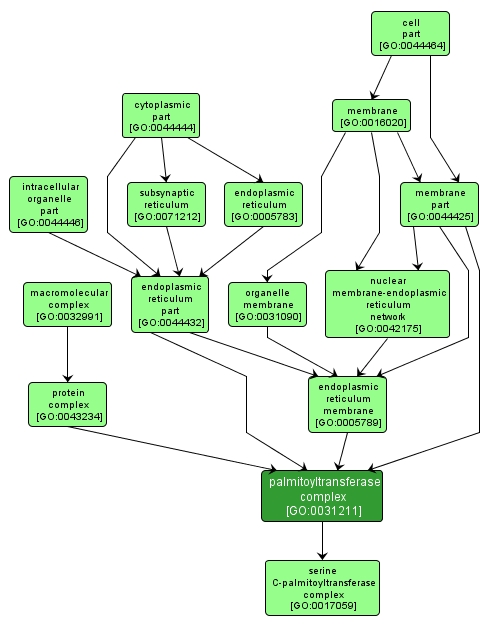GO TERM SUMMARY
|
| Name: |
palmitoyltransferase complex |
| Acc: |
GO:0031211 |
| Aspect: |
Cellular Component |
| Desc: |
A dimeric complex of the endoplasmic reticulum that catalyzes S-palmitoylation, the addition of palmitate (C16:0) or other long-chain fatty acids to proteins at a cysteine residue. |
|

|
INTERACTIVE GO GRAPH
|














